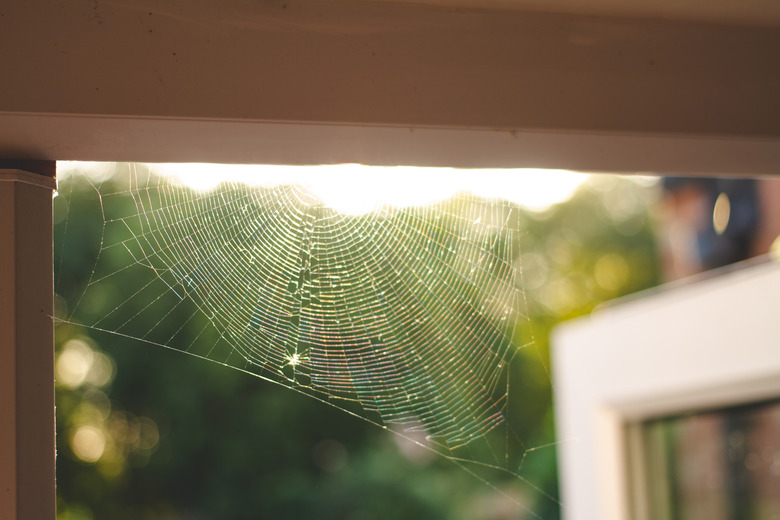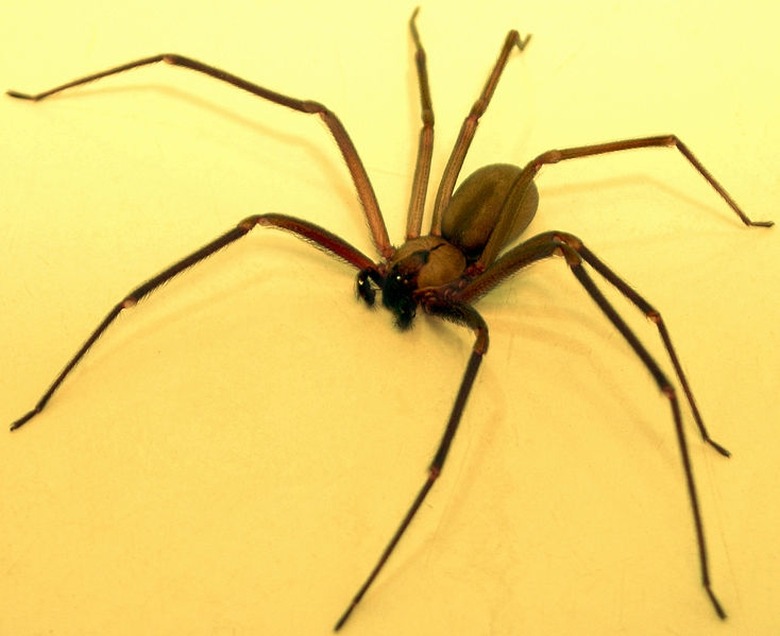Does Vinegar Work As A Spider Repellant?
Because many people are loathe to harm creatures, they often seek to repel rather than kill. They may ask themselves, "Does vinegar keep spiders away?" These kindly, intuitive folks are often saddened to learn that effective spider repellents don't exist.
While they typically realize that spiders are highly beneficial arthropods whose diets consist completely of insect pests, many fans of the arachnids may not wish to have the critters in their homes.
But don't worry: Just because you don't want to harm or kill spiders doesn't mean you're helplessly doomed to be their roommates. Learn some well-validated techniques to politely request they vacate your space.
Can I Repel Spiders With Vinegar?
The short answer is no. While there is a profusion of anecdotal "evidence" insisting otherwise out there, the truth is that repelling spiders naturally (or in any other way) simply isn't a proven reality. Vinegar and spiders aren't exactly soulmates, but no scientific documentation exists that states that one repels the other.
Know Your Ally
Spiders are abundant throughout most of the world, with roughly 38,000 species currently identified and named, but only around 100 species carry venom that is harmful to humans.
Around 3,500 spider species call the United States home, and most aren't a threat to people or larger pets. Only two types of North American spiders can be downright dangerous to humans, black and brown widows (Latrodectus spp.) and brown recluses (Loxosceles reclusa). Though the bites of these animals often require medical attention, they're rarely fatal to humans.
Even though lots of folks think humans would be better off without spiders, the truth is that we honestly just can't live without them in our world.
The Good Guys
Spiders are the "good guys" that eliminate insect nasties that cause diseases in people and pets as well as pests that destroy our crops, lawns and ornamentals. Insects would soon overrun the world without spiders to keep them in check.
Pollinators
Outdoor spiders often serve as important and absolutely essential pollinators.
A Food Source
Many spider species are significant food sources for birds and small mammals.
Tip
The term "bug repellent" is actually somewhat misleading. These materials don't really chase or "repel" insects (or anything else). Instead, they block the receptors that creepy-crawlies use to detect and home in on prey hosts to eat, essentially removing their appetite for that prey. Despite the claims by many that insects and spiders are repelled by certain smells_**,** no matter how many times you hear the vinegar-spiders myth,_ true repellents have nothing whatsoever to do with odors of any type. Furthermore, if spiders are able to detect, or smell, airborne odors, they seldom show any signs of it.
How to Keep Spiders Out of Your Home
Because most spiders are harmless_—feeding solely on pests—_it's best to just leave them alone if at all possible, particularly outdoor spiders.
Failing that, the best integrated pest management techniques involve little more than a little hard work and basic housekeeping.
Clean Up Cobwebs and Seal Entrypoints
- Regularly
eliminate cobwebs and egg sacs with a cobweb brush to minimize hiding places.
- Install
window screens.
- Seal
up foundation cracks and openings to prevent spiders from accessing the indoors.
Eliminate Food and Shelter
- Switch
to yellow outside light bulbs, which are somewhat less attractive to the flying insects that spiders feed on.
- Remove clutter indoors as well as outside.
- Keep
vegetation 12 inches or more from the home's foundation to deny shelter opportunities to spiders.
- Dust, sweep and vacuum regularly.
Be on the Lookout
- Monitor
indoor areas that are very dry and spaces that stay moist.
- Look
for spiders in dark crevices and corners where they build webs. Cobwebs indicate where spiders may be hiding.
- Keep
the exteriors of the home and other structures clear of cobwebs.
- Check
outdoor benches, picnic tables and playground equipment regularly.
Eradicate Spiders Without Toxins
- Remove
an individual spider by placing a jar over it. Gently slide a thin piece of cardboard underneath, sealing the jar mouth. Then release the critter outside.
- If
you simply must destroy one, stomp on the spider or swat it with a rolled-up newspaper.
Tip
Don't bother with insecticidal sprays, which don't work for spider management since the animal's body doesn't come into contact with treated surfaces. Spraying doesn't kill spiders unless you apply the product directly to the animal. Worse, many sprays leave behind residues that can be harmful to people, pets and the environment.

